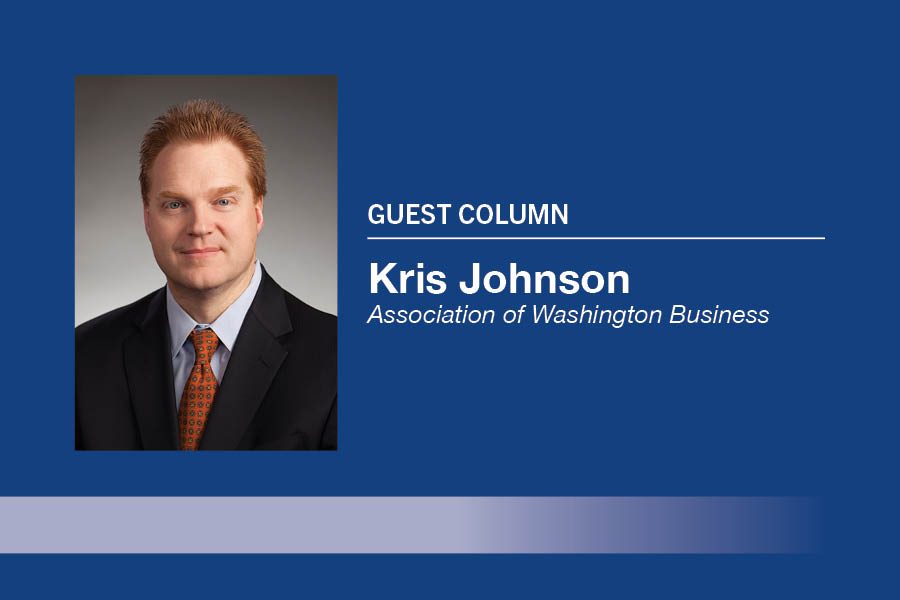
Home » Cross-border trade remains vital to WA economy
Cross-border trade remains vital to WA economy

July 15, 2024
It’s a tradition for the Association of Washington Business to visit the local Costco during our international trade missions. AWB’s trade mission to Canada in June was no different. Our delegation that included several Washington growers saw their cherries, apples and sweet onions in a busy Costco in downtown Vancouver, British Columbia.
We can proudly say Washington is one of the most trade-driven states in the nation. Trade supports jobs in every corner of our state – and Canada is one of our top trading partners. It’s also our No. 1 export market for agricultural goods.
We don’t – and shouldn’t – take this for granted.
The Canada trip was AWB’s fourth international trade mission, after visits to Japan, the United Kingdom and Mexico. The trade missions are not only a chance for Washington companies to tap into new markets – they help lawmakers see firsthand how they can support good trade policy.
The trip was also timely. The Canada trade mission was the second leg of our two-year effort to strengthen ties among partners in the U.S.-Mexico-Canada agreement (USMCA), which is up for review in 2026. Good trade policy means all three parties win.
Our delegation to Canada included Washington Lt. Gov. Denny Heck, state Department of Agriculture Director Derek Sandison, a bipartisan group of state legislators, and a dozen Washington business leaders in industries from agriculture to manufacturing.
We spent the week in Vancouver, B.C., and Ottawa meeting with Canadian leaders to discuss the shared goal of expanding trade. There are real business opportunities that come out of these trips. I know at least one Washington company likely to have a new deal to export their products into Canada.
We also had important discussions on energy, transportation, agriculture and the upcoming 2026 FIFA World Cup in which both Seattle and Vancouver will host games. An estimated 750,000 fans are expected to descend on the city for six matches – and hundreds of thousands also will attend games in Vancouver. We talked about how our cities can work to capitalize on the economic impact and bring those fans back to our region.
A highlight for everyone was a beautiful boat tour of the Port of Vancouver, which handles an impressive 50% of the container cargo coming into the country. We learned about an expansion project to boost container capacity while reducing the port’s impact on the environment. Our delegation included several representatives of Washington ports.
Energy is an important cross-border issue and was a focus of the trade mission. Canada is a key energy trading partner for Washington and vice versa, and we both share the challenge of meeting clean energy goals while ensuring energy reliability and affordability.
Our delegation learned about Simon Fraser University’s new Clean Hydrogen Hub, which just received a big cash infusion from the Canadian government. The hub will scale up hydrogen technology and aims to start commercially producing hydrogen in two years. Washington’s own Pacific Northwest National Laboratory shared its innovative work to modernize the electric grid and improve energy storage.
The trip touched on many other areas of collaboration, from addressing housing shortages to connecting the megaregion through the Cascadia Innovation Corridor.
Washington boasts some of the highest trade numbers, thanks to the exceptional goods produced by our manufacturers and farmers. It’s also because of the strong ties we’ve developed with nations like Canada, and commitment to mutually beneficial policies.
One thing we’ve learned from our series of trade missions is that we really are all connected — across the globe and closer to home with our neighbors to the north and south. With so much of Washington’s economy driven by trade, it’s vital that we continue to invest in these relationships.
Kris Johnson is president of the Association of Washington Business, the state’s chamber of commerce and manufacturers association.
Agriculture Opinion
KEYWORDS July 2024
Related Articles
Related Products




